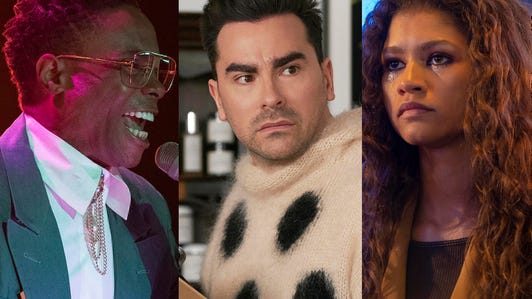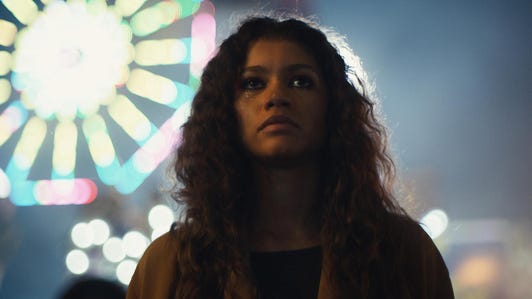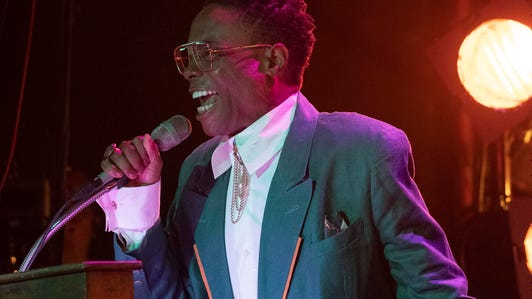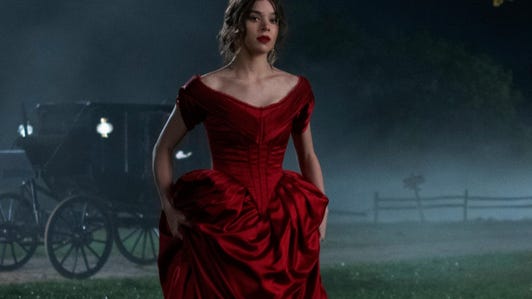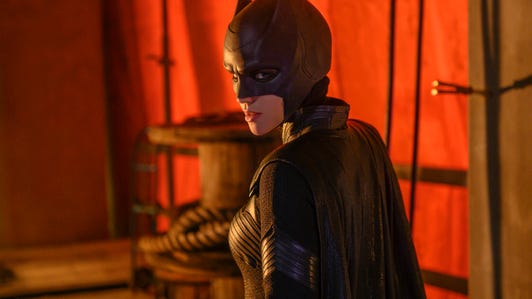
Pose's Billy Porter Talks About Being a Ballroom Emcee — and the Most Butch Queen in the Room
Why the FX series seems like 'a manifestation of the impossible'
It's no coincidence that Pray Tell (Billy Porter), the emcee with the raspy golden voice in Pose, injects whole albums worth of musicality in the words he speaks while commandeering the ballroom floor: Billy Porter is an accomplished Broadway vet, best known for winning a Tony for portraying Lola in Kinky Boots. Of course, Porter is also black and gay and thus already familiar with the rhythms and tones in ballroom language; his arrival in New York (from Pittsburgh) in 1985 placed him smack dab in the middle of the scene's mythic modern origin, documented in Paris is Burning and dramatized in Pose. While Porter pumps Pray Tell full of joy and pastiche whether in the ballroom or when playing sister to Blanca or godfather Damon (Ryan Jamaal Swain), Porter also knows a lot about the suffering Pray Tell experienced too. Like Pray Tell, Porter was also coming into his own as a young man in New York just as AIDS was turning New York into a ghost town, all while he faced discrimination and underemployment that made opportunities scarce. As he tells TV Guide, Porter faced constant rejection on Broadway and in Hollywood because of his sexual orientation and natural flamboyance -- he was constantly told he had no chance in the industry. Thirty years later, Porter is thriving as a singer, actor and performer for being exactly who he is, and playing a role that honors his experience. As he wrapped the finale episodes, Porter talked with TV Guide about how Shakespeare and Judi Dench informed Pray Tell, why Pose feels like a watershed moment and the giddy irony of being the most masculine performer in the room.
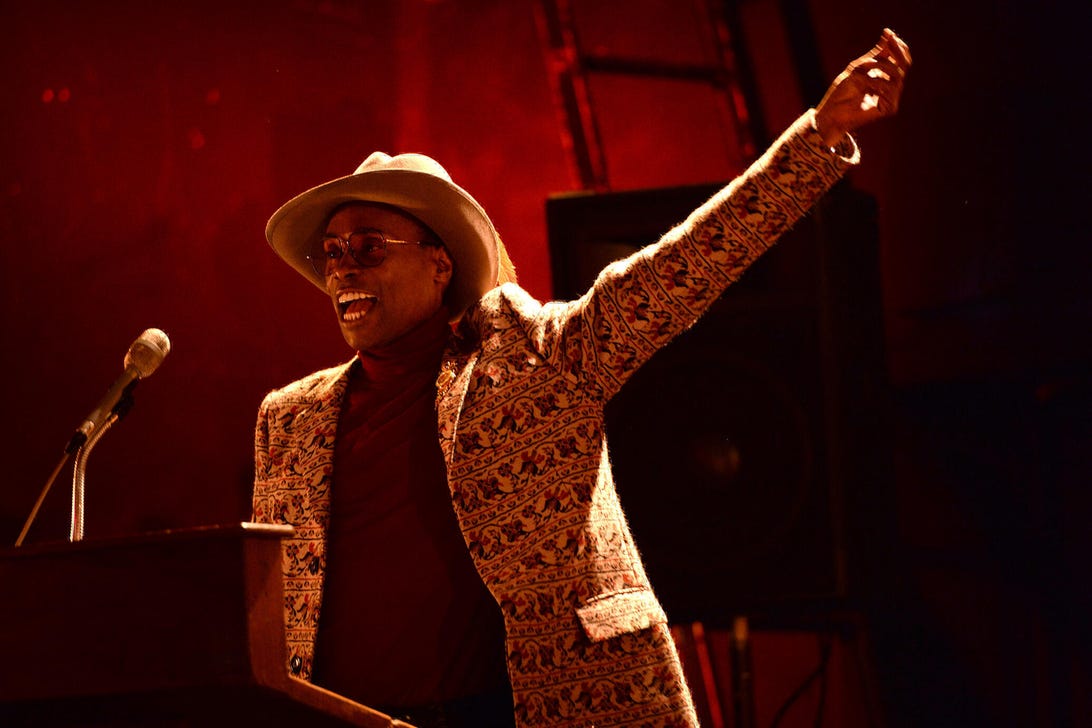
Billy Porter as Pray Tell, Pose
FX
First of all, the name Pray Tell -- what's the backstory, how did the name come about?
Porter: That's Ryan Murphy. That bitch is a genius. The character didn't exist until I walked into the room. He created and developed the character for me. The first time I knew who the character was, was when I went to my first costume fitting. I was like, 'Wait - my character's name is Pray Tell?' (Laughs) It's hilarious!
There is so much musicality in the way Pray Tell delivers his words. It's very much how black gay people speak with one another but how did you go about bringing that to the screen?
Porter: One of the things that I am really proud of is that I trained as a classical actor at Carnegie Mellon. I had a really hard time when I first came to New York City; I was pigeonholed into being The Coon Show. It was really difficult to convince people what I was bringing to the table wasn't happenstance -- there is craft and thought behind it, not just, 'All black people can sing!' or 'Just be crazy!' I have not been in the ballroom scene -- I have been ballroom adjacent -- but one of things I find interesting in ballroom and the black church too are these people who stand in the front and hold forth in front of the congregation. They have to feel and appear elevated. One of things they do is adjust their speech. Sometimes the heightened energy is layered into the approach so it was, 'How could I make this character grounded?' I went back to the Shakespearean. I said this character appears in this material in the ballroom in a Shakespearean way. How would Judi Dench or Sir Ian McKellen do it? What would be the black gay version of one of those actors doing it?
When you say Shakespearean, what does that mean? Do you mean the delivery?
Porter: It's in verse. When you learn Shakespeare, the meaning of the line comes in the cadence. The iambic pentameter of it. And in (black) culture, with rap and and hip-hop, it lends itself to it naturally to that. I've tried to make it sort of sing in that way.
How much of what Pray Tell does in the ballroom is written, and how much is ad-libbed? Porter: Some of the lines are written and some of them are ad-libbed. I don't consider myself a huge ad-libber. Like those Saturday Night Live improv people, I don't consider myself that. Literally the first day, I walk in, I'd learned learned my lines and then Ryan was like, 'I need you to ad-lib, say this and say this and then just go off.' I've gotten more comfortable with it, but it's terrifying. The one thing I learned from acting school and improv is, the answer is yes. You have to just say yes to everything. So whoever comes down the runway, I say yes. And the great part about film and television is, if you say something they don't like, it's not gonna make it.
You've talked about being passed over for roles in the past, or getting offers for roles that were confining or stereotypical. Why did this one speak to you?
Porter: I've been talking about dreams and the context of dreams and while my dreams have always been expansive, it's all been based on something I've already seen. It was never about dreaming about the impossible. That is what the last few years of my life have shown me. This is the manifestation of the impossible. I came out in 1985. I never imagined in a million years it could look like this. I was told every single day of my life that it would never look like this -- that I would have to adjust to be a part of something else. So to see it happen like this -- to have it come to me to be the exact version of myself that I chose -- I chose authenticity and truth and every hit that came with that. I'm so speechless right now. I'm just floating on air. Especially in the middle of all this bullshit, when one of the biggest stars on TV can call Valerie Jarrett an ape, while this administration is actively trying to erase the word transgender, we can have history happen, this thing that speaks truth directly to power, that infiltrates culture from the backdoor, changes hearts and minds, adjusts the system. You can't pull it back. You can't pull progress back. The world only spins forward, boo.
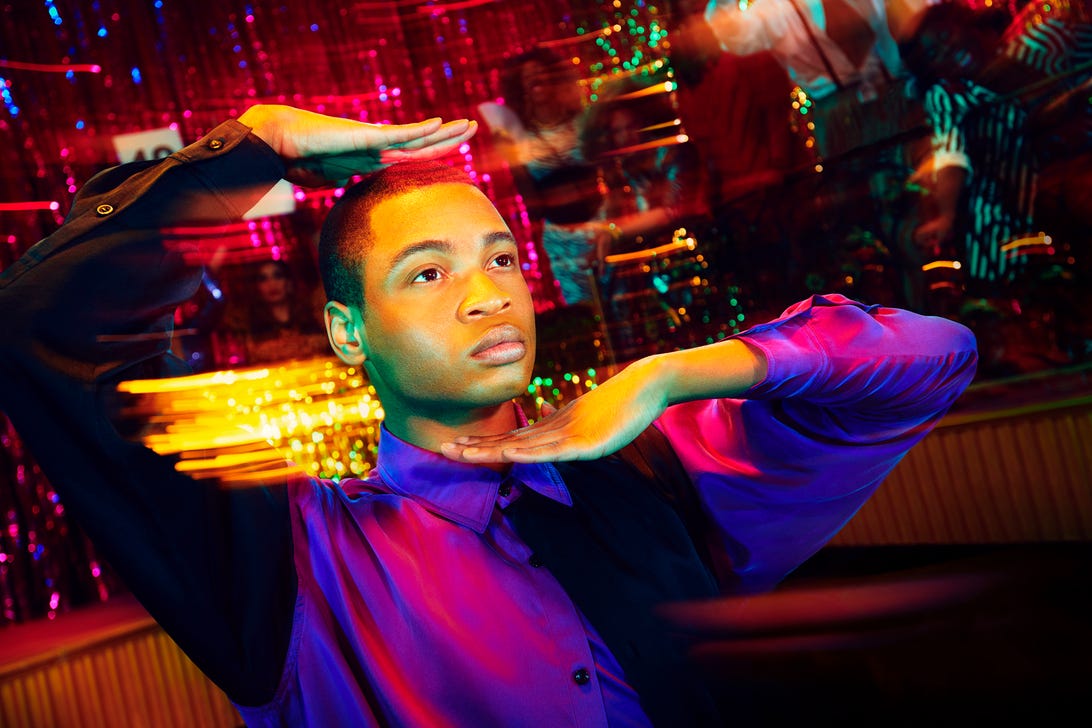
Ryan Jamaal Swain as Damon, Pose
FX
Pray Tell is a big authority figure -- he keeps the kids in check and is sort of the head masculine figure in the room if not the series; he's a cisgender man but is like one of the queens. What's your take on his brand of masculinity?
Porter: The idea that for my entire life I was called a sissy, a f****t...every time I walked into a room for an audition, if the description doesn't say flamboyant in front of it, I'm not seen. I can't ever get seen for somebody straight. If it's not sashaying around in the most buffoonish, clownish version of being gay, I'm not even considered. It was was mid-way through the season I realized, I'm the masculine energy on this show! I'm the boy on this show! (Laughs). It took me owning it myself, putting on those heels with Lola, which is the antithesis of what everyone told me was possible.
What does masculine mean now anyway? Professional and domestic roles have changed so much, along with the definitions of what manhood is in the 21st century...
Porter: It doesn't mean anything to me. The only thing I am concerned with is telling the truth. If you receive it as masculine then good for you. If you don't good for you. It's no longer my business what other people think about my masculinity or if I'm masculine or not. I don't care. Let me tell you something: to be an out gay black man in this world to live out and proud -- I came out in 1985 -- that's about as masculine as you can get. So, y'all can kiss my ass.
You were in New York just as AIDS hit, as it wiped out a significant part of the Broadway and performing arts community. How does surviving that inform your work on Pose?
Porter: I lost my first friend at 18. By 21, I had lost more people than my grandparents had. It was devastating. It was terrifying. The idea that, not only did your love not matter, but when you found the courage to figure out how to love you could actually die from it? There are a bunch of us who survived. We know how to fight but we don't know how to live. The people who were supposed to teach us how to do that died in the plague. We're the first generation of out gay men who have lived to see this age. We have to be leaders. But lead from where? There's no example, we're making it up as we go along. This is something that allows us to to heal, this piece. It's very healing for me.
Pose airs Sundays at 10/9c on FX.

